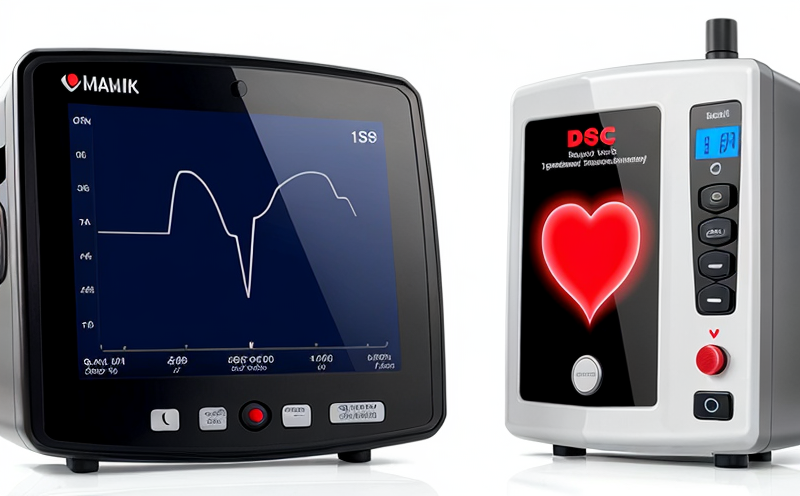ISO 14708-2 Pacemaker Battery Longevity Testing
The ISO 14708-2 standard provides comprehensive guidelines for the testing of pacemaker batteries, ensuring that they meet stringent safety and performance criteria. This testing is crucial in medical device manufacturing to prevent potential failures that could lead to patient harm.
Pacemakers are implantable electronic devices designed to regulate heart rhythms. Their battery longevity directly impacts patient outcomes, as a premature failure can necessitate immediate surgical intervention or result in serious health complications. Testing batteries according to ISO 14708-2 ensures they meet the required standards for safety and performance.
The testing protocol outlined in this standard involves rigorous procedures that simulate real-world conditions under which pacemaker batteries operate. This includes assessing battery endurance, temperature cycling, vibration tolerance, and other environmental factors that can influence longevity. Compliance with these tests is mandatory to ensure product reliability and patient safety.
At Eurolab, we employ advanced equipment and methodologies to conduct ISO 14708-2 testing, providing accurate results tailored to the specific requirements of medical device manufacturers. Our expertise ensures compliance with international standards while offering detailed insights into battery performance.
Why It Matters
The reliability and longevity of pacemaker batteries are critical for patient safety and well-being. A failed battery can lead to life-threatening situations, underscoring the importance of thorough testing. By adhering to ISO 14708-2 standards, manufacturers ensure that their products meet stringent performance criteria.
Patient-specific considerations further emphasize the significance of this testing. For instance, elderly patients often require longer-lasting batteries due to limited access to medical care. In contrast, younger individuals might benefit from more frequent replacement schedules. Testing according to ISO 14708-2 helps manufacturers tailor their products to meet these diverse needs effectively.
From a regulatory standpoint, compliance with international standards such as ISO 14708-2 is essential for market access. Regulatory bodies worldwide recognize the importance of this standard, and non-compliance can lead to product recalls or even legal action. Ensuring adherence to these guidelines not only protects patients but also safeguards manufacturers from potential liabilities.
In summary, ISO 14708-2 testing is vital in ensuring that pacemaker batteries are reliable, safe, and effective. This testing aligns with broader quality management objectives, enhancing product performance and patient care.
Scope and Methodology
| Test Parameter | Description |
|---|---|
| Battery Endurance | The ability of the battery to maintain sufficient charge for a specified duration. |
| Temperature Cycling | Simulation of temperature variations encountered during normal operation. |
| Vibration Tolerance | Evaluation of how well the battery withstands mechanical vibrations. |
| Electrical Characteristics | Measurement of electrical parameters such as voltage and current. |
| Battery Charge Time | The time required for the battery to reach a specified charge level. |
| Discharge Rate | The rate at which the battery discharges under load conditions. |
The testing process begins with specimen preparation, ensuring that each battery undergoes identical initial conditions. This includes cleaning, charging to full capacity, and stabilizing for a specified period. Once prepared, batteries are subjected to various environmental stressors designed to mimic real-world operating conditions.
Data collection is continuous throughout the test duration, allowing us to monitor performance parameters in real-time. Our advanced equipment captures detailed metrics that provide actionable insights into battery behavior under different scenarios. At completion of testing, we generate comprehensive reports summarizing all relevant findings and compliance status.
Eurolab Advantages
At Eurolab, our commitment to excellence extends beyond compliance with ISO 14708-2. We leverage state-of-the-art facilities equipped with cutting-edge technology to deliver precise and reliable testing results.
Our experienced team of engineers and technicians brings deep industry knowledge, ensuring accurate interpretation of test outcomes. This expertise enables us to provide valuable recommendations for improving product design and performance based on our findings.
We offer a range of additional services tailored to your specific needs, including consultancy and training programs aimed at enhancing your quality management practices. Our flexible approach allows you to select the most appropriate services that align with your business objectives.
Trust Eurolab for comprehensive ISO 14708-2 testing and related services. Together, we can ensure that your pacemaker batteries meet the highest standards of safety and performance.





